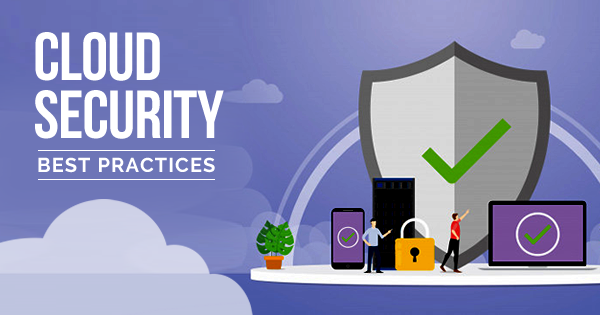Cloud security has become a top priority for organizations, especially those operating in hybrid or multi-cloud environments. As Nigerian businesses increasingly migrate mission-critical workloads to cloud platforms like AWS and Azure, ensuring robust cloud security is crucial. In this blog, Sebastine, a seasoned Information Security Engineer specializing in Cybersecurity, DevOps, and CISO roles in Nigeria, offers insight into cloud security best practices to help organizations keep their environments safe from evolving cyber threats.
Cloud computing offers scalability, cost savings, and operational efficiency, but it also brings unique security challenges. By implementing the following cloud security best practices, Nigerian businesses can secure their data, maintain compliance with regulations, and avoid costly breaches.
1. Understand the Shared Responsibility Model
Both AWS and Azure follow a shared responsibility model. While the cloud provider secures the infrastructure (e.g., data centers, networking), Nigerian businesses must secure their data, applications, and systems within the cloud. Sebastine emphasizes the importance of understanding which security tasks fall on the customer, such as encryption, identity management, and data protection.
2. Enforce Strong Identity and Access Management (IAM)
Identity and Access Management (IAM) tools in AWS and Azure help enforce strict access controls. Businesses should adopt the principle of least privilege, granting users only the necessary permissions to perform their job functions. Multi-factor authentication (MFA) is another layer of protection, significantly reducing the risk of unauthorized access. Sebastine highlights how strong IAM policies are critical for safeguarding cloud environments.
3. Encrypt Data at Rest and in Transit
Encrypting sensitive data both at rest and in transit is essential. AWS and Azure provide built-in encryption tools like AES-256 for stored data and TLS for data in transit. Nigerian businesses should also consider encrypting data before uploading it to the cloud for an extra layer of security. Data encryption is a fundamental step in protecting against unauthorized access or breaches.
4. Implement Regular Security Audits and Continuous Monitoring
Security audits help businesses identify vulnerabilities in their cloud setup. AWS CloudTrail and Azure Security Center offer monitoring tools that detect suspicious behavior and generate real-time security alerts. Continuous monitoring is essential to catch misconfigurations or emerging threats before they escalate. Sebastine recommends regular reviews and updates to ensure cloud security remains effective as business needs evolve.
5. Configure Virtual Private Networks (VPNs) and Firewalls
Deploying Virtual Private Networks (VPNs) and configuring firewalls in your cloud environment ensures secure communication between on-premises infrastructure and the cloud. AWS Virtual Private Cloud (VPC) and Azure Virtual Network offer isolation of cloud environments, reducing exposure to cyber threats. Firewalls and VPNs are indispensable for securing data transfers.
6. Enable Security Posture Management
Cloud security posture management (CSPM) tools help businesses continuously assess and monitor their cloud environments for misconfigurations and regulatory compliance. AWS Config and Azure Policy enforce security standards and ensure alignment with regulations like Nigeria’s Data Protection Regulation (NDPR). CSPM tools play a pivotal role in avoiding non-compliance penalties.
7. Automate Security Patching and Updates
Unpatched systems are common targets for cyberattacks. Automating security patching ensures cloud-based applications and infrastructure remain up to date without manual intervention. AWS and Azure offer automated patching options to reduce exposure to vulnerabilities. This proactive approach prevents hackers from exploiting outdated software.
8. Backup Data and Implement Disaster Recovery Plans
Regularly backing up data and having a disaster recovery plan in place is crucial. AWS Backup and Azure Site Recovery provide comprehensive backup and disaster recovery services. Testing these backups ensures business continuity in the event of data loss or system failure. Sebastine stresses the importance of disaster recovery to minimize downtime and financial losses.
9. Utilize Multi-Region Deployments
Multi-region deployments provide redundancy, ensuring that data and services are distributed across different geographical regions. AWS and Azure enable businesses to host resources in multiple regions, ensuring operational continuity in case of localized outages or disasters. This approach is key to maximizing uptime and resilience.
10. Train Employees on Cloud Security Best Practices
Human error is a significant cause of security breaches. Regular employee training on cloud security best practices is essential. Employees should be trained to recognize phishing attempts, use secure passwords, and avoid risky behaviors such as accessing cloud environments via public Wi-Fi. Sebastine recommends making security awareness an integral part of the organization’s culture to prevent accidental security lapses.
Conclusion
Cloud security is vital for Nigerian businesses leveraging AWS and Azure. By following these best practices—understanding the shared responsibility model, enforcing strong IAM policies, and automating security patching—businesses can secure their cloud environments, protect sensitive data, and reduce the risk of cyberattacks. As Nigeria’s digital transformation continues, staying proactive in cloud security will ensure long-term protection and compliance.

